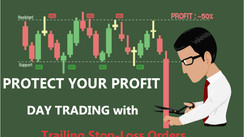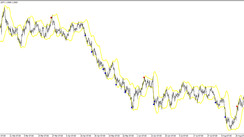Day trading is a simple type of financial trading that implies making short-term trading actions during the day. Day traders typically look for opportunities to make quick profits from small price movements in the market. As such a type of trading requires making short-term decisions, for success it is needed to have strong time management and problem-solving skills. It logically means to know your operating market and its dynamics deeper than usual.
There are a few main features of day trading that make it different from other types of trading. First, day traders typically buy and sell securities within the same day. So, they have to monitor the market during the day to not miss the most profitable positions. Second, day traders usually have access to more capital than other investors, which allows them to take on more risk. Finally, day traders often use leverage to magnify their returns.
In this article, we will have a detailed look at day trading and also we will outline several steps which will help you to become a successful day trader.
What Is Day Trading More About?
There are a few main features of day trading that make it different from other types of trading. First, day traders typically buy and sell securities within the same day. Second, day traders usually have access to more capital than other investors, which allows them to take on more risk. Finally, day traders often use leverage to magnify their returns.
The primary difference from traditional financial trading is that day traders have to maximally avoid thinking and acting for long-term prospects. Similar to ordinary traders, they can't hold positions for weeks or months. Day traders may make multiple trades throughout the day, but they will always close out their position before the end of the trading day. On the other hand, thinking that ordinary trading is simple because of its long-term features, is wrong. Holding positions for years requires a good knowledge of trading and the market.
Day trading can be difficult, especially if you're new to the game. But if you use an appropriate knowledge center where forex trading is explained for beginners in detail, starting will be much easier. There are a lot of moving parts and things to keep track of, so it's important to do your homework before getting started. Even experienced traders can have difficulty navigating volatile markets, so don't be discouraged if you lose a few trades at first. Stick with it and you may find that day trading can be profitable and exciting.
How To Become A Day Trader And What Are The Pros And Cons Of Day Trading
There are many advantages to day trading, including the ability to take advantage of short-term market movements, the opportunity to capitalize on leverage, and the potential to make a large profit in a relatively short period of time. Day traders also have the benefit of being able to control their own schedules and choose when they want to trade.
There are several disadvantages to day trading, the most notable being that it is a very risky investment strategy. Day traders rely heavily on speculation and short-term price movements, which can lead to large losses if the market doesn’t move in their favor. This means that for day traders, time is everything because they have to spend the whole day monitoring the market. This is difficult even for advanced ones. Finally, because day trading is such a high-pressure activity, it can be difficult to stick with for the long term – many traders burn out after just a few months.
Following several key steps will make it easier to start successful day trading. The primary requirement is to know the market very well. You can improve needed knowledge through books or specific course tutorials. For sure, it is needed to have a sufficient amount of capital for the day. Once these two things are in place, a person can begin making trades. However, it is important to always keep an eye on the market and monitor one's own position so as not to risk too much capital at any given time.
Now we can look at some helpful strategies for the first steps in day trading. The most important thing is to have a detailed plan for 24 hours and change it every day. Knowing your goals will make needed actions clear. Additionally, it is essential to avoid emotional situations and avoid them during making a decision. Third, it is important to manage risk by knowing when to exit trades. Lastly, it is important to always keep learning and improving your skills.
For some people, the potential rewards of day trading can be great. But remember that in day trading, short-term risks are high which can cause losing the total capital. So, for some of you, day trading is a suitable option but to conclude, it is up to individual needs and trading skills.





